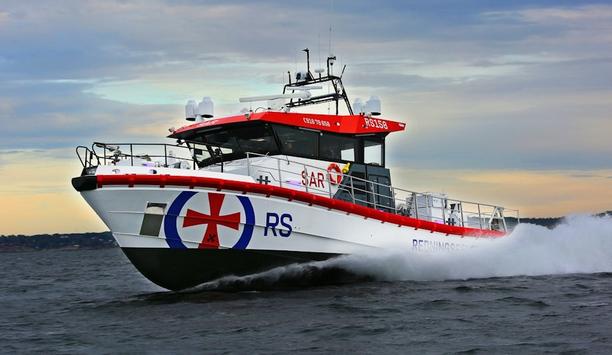NKHATA BAY — In a major step toward modernising border security and migration management, Malawi has launched a one-year pilot phase of the Marine Border Project in Nkhata Bay District, targeting irregular migration and trafficking through Lake Malawi.
The project, officially introduced by the Department of Immigration and Citizenship Services, represents Malawi’s first dedicated effort to control migration and improve security along its lake-side borders.
Speaking to the media, Inspector Pasqually Zulu, the Department’s Public Relations Officer, described the initiative as a strategic foundation for transforming how the country manages lake-based movement across borders.
“This project lays a foundation for the Department in enhancing lake-side border security, whilst at the same time promoting regular migration in Malawi at the lake-side port of entry,” Inspector Zulu said.
The project is being implemented under the leadership of Acting Director General Macloid Kalindang’oma and is aimed at formalising and tightening surveillance at one of Malawi’s most porous and under-policed borders.
Lake Malawi, particularly through Nkhata Bay, has been identified as a key corridor for irregular migration, often linked to human trafficking, child smuggling, and undocumented cross-border movement.
The Marine Border Project is expected to introduce structured border checks, immigration screening, and surveillance infrastructure that will not only improve national security but also streamline legal migration at this strategic port.
Currently, a high-level delegation led by Commissioner for Administration Vivian Kasambo is in Nkhata Bay to assess land availability, existing infrastructure, and procurement logistics required for full implementation. The team includes representatives from Malawi Lake Services, the Department of Buildings, and the Ministry of Lands.
Inspector Zulu said that the assessments are crucial for determining the layout and location of border facilities, as well as identifying potential bottlenecks in the procurement and construction processes.
The Marine Border Project is funded by the Government of Japan through the Japanese Supplementary Project (JSP), under the umbrella of the Tokyo International Conference on African Development (TICAD). The International Organisation for Migration (IOM) is implementing the project in collaboration with the Government of Malawi.
The IOM has been a long-standing partner in migration reform across Africa and brings technical expertise in border infrastructure, staff training, and migrant protection mechanisms.
The initiative is seen as a response to Malawi’s vulnerability to transnational crime, which often takes advantage of the lack of structured monitoring on the lake. Smugglers and traffickers exploit informal routes across the water to bypass legal checks.
By focusing on marine migration, the government aims to address the blind spot in the national border control strategy. Currently, most border resources and surveillance are concentrated on land-based entry points, leaving lake ports like Nkhata Bay, Likoma, and Chilumba under-protected.
The pilot phase will involve capacity building, installation of docking and inspection facilities, and community awareness programmes aimed at encouraging cooperation between local residents and immigration authorities.
If successful, the Marine Border Project is expected to be scaled up to other districts along the lake, forming a regional border management model that could influence similar initiatives in neighbouring countries like Mozambique and Tanzania, which also share Lake Malawi.
The programme aligns with Malawi’s broader national strategy to combat human trafficking, enhance security, and facilitate orderly migration, in line with international standards and its obligations under regional and global migration frameworks.
As migration patterns in Africa become more complex, Malawi’s initiative is being closely watched as a potential blueprint for lake-border governance, particularly in regions where water routes are routinely used for irregular movement.
